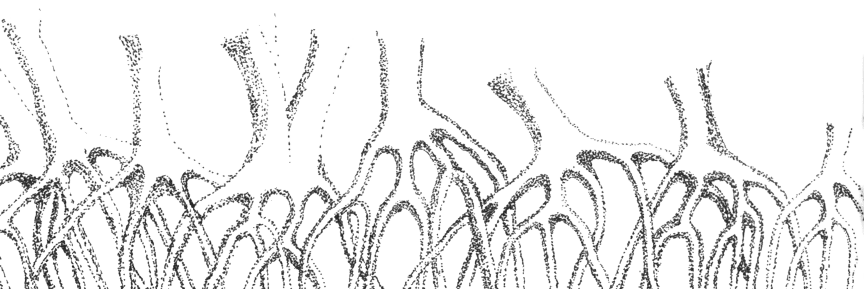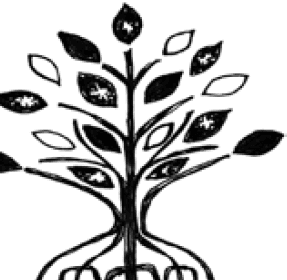Golden Valley
Lance Catedral
Not far from where she lives is the edge of town, where the houses are far in between. On Friday afternoons, she takes a twenty-minute walk. Her only son, a doctor in another city, told her this was good exercise. The road is uphill, lined by old acacia trees that filter the sun. She hums to the tune of “Trust and Obey.” After passing the Carmelite convent, she takes the narrow side road to the left, marked by the crumbling sign, “Golden Valley, 500 meters away.” From there, the incline becomes progressively steeper. She pants for air, stops under the shade to drink from her water bottle, then proceeds as she has done religiously since he passed away.
She knows he is no longer there but is comforted that his skeletons must still be intact six feet under. He is elsewhere, surrounded by worship, songs, and rejoicing, in a glorified body she hopes she will recognize when her time comes. She imagines Rudy looking down, listening to her complaints about the neighbor’s cat or her vivid, lifelike dreams that linger in her memory until breakfast when she finds herself fully awake. Surely, one could not just move on from the last 37 years of being together. When she realizes she has run out of losartan, she reflexively instructs him to pick up her meds from the pharmacy as if he were just in the other room. In the dark, before she sleeps, she tells him about her day, in which nothing much happens. She keeps this habit a secret from her conservative pastor, who once preached against necromancy.
On this particular afternoon—a town holiday—the road is moist and slightly slippery. It had just rained after lunch. The air is cool and crisp, but she must take extra care to avoid the caterpillars that fall from the damp trees. Along the way, young men in full cycling gear greet her. She is “Ma’am Helen” to them. The town remembers her as the English teacher from the district elementary school, though she has long since retired. She still asks about them: what are they doing now, how many kids, how are their parents…She relishes these conversations; she imagines she is in a homeroom meeting with the PTA, when the quarterly grades are released.
She arrives in Golden Valley with the familiarity of habit: she knows which bench to sit on and which exact path to take. The cemetery caretaker, a fiftysomething man named Nonoy, never without a cigarette, is sweeping the fallen kalachuchi and bougainvillea on the lawn. He greets her briefly and disappears from view. She is alone but not lonely.
“Hello, Dad, here I am again,” she says to the gravestone on aisle 2, row 44. The ground beneath her is silent, though she would have welcomed the paranormal. The calico cat, a resident of these parts, walks toward her and brushes its tail on her legs, purring. She clears the lapida of dust and candle remains and trims the carabao grass that obstructs the engraving.
She walks to the top of the graveyard hill, where she usually spends an hour sitting on the black, metallic bench, preoccupied with nothing else but the moment. The view is spectacular, almost omniscient. She can see the town from this vantage point and determine where the Catholic church is, the new mosque, and the provincial capitol. So much has changed, and yet nothing has. However, this afternoon, she notices a purple book on the other end of the bench. It is wet. Someone must have left it there. She lifts it carefully, shakes off the water, and thumbs through the pages to keep them from sticking together. If the book is airdried properly, it could still be saved. Her first instinct is to ask Nonoy about its owner. Since he is not around, she looks for marginalia of ownership. Scribbled in an elegant cursive is “Aileen, 2020,” below “Dreamweavers,” the title. Leafing through the pages, she finds herself reading deeply and thoughtfully, and loses track of time. She realizes that the words are harder to read in the dusk. It is time for dinner, and she must go home. She takes the book with her.
The house smells of fried fish and boiled vegetables. Before eating dinner and taking a shower, she lays the book open on a study table, with the fan angled towards the pages. The book dries quickly enough. She heads to bed and reads:
…Mother, friends and lovers
Down the drain
Until —
I flick to reverse the course of things
And play the sandgrains back….
For the first time in three years, she falls asleep with the lights turned on, and Rudy, smiling, speaks to her in her dreams.
She returns the next morning to hand over the book to Nonoy, who files this under lost- and-found. Normally, she avoids Saturdays in the cemetery because of the crowd. Weekends are the opposite of quiet: families on picnic, rowdy music broadcast on loudspeakers, unruly, shouting, crying children whose modern mothers are afraid to discipline. But Golden Valley is empty this weekend. Except for two joggers, there was nobody else. Seeing the caretaker oiling the hinges of the main gate, she asks whether he might know to whom the book belongs.
Nonoy says, “That young lady must have left it. Comes here almost every day, often in the mornings. Never spoke a word to me. But I heard that her daughter died two, three months ago. Some kind of cancer. Two years old!”
Three months later, sitting on the black bench, Helen hears footsteps from behind, and a shy, gentle voice, getting louder by the second, speaks to her, “I thought I would find you here.”
Helen looks back and sees a woman in her twenties, with short hair and light makeup, in a cheerful light pink dress, approaching her. She had never seen the woman before. The woman apologizes for interrupting the peace and, catching her breath after the steep climb, says to Helen, “Ma’am, I’d like to thank you for looking after my book. It is very special to me.”
“Ah, you must be Aileen. Please sit and have some of my tea and sandwich,” Helen says.
It is almost December now. The air is balmy. The birds, like carolers, sing from the branches, and the leaves rustle with the cool wind. A fog hovers around the town, now decorated with lights and parol.
Helen says, “I took the liberty to bring it home and dry it. I finished reading all the poems. I hope you don’t mind.”
“They’re delightful, aren’t they, Ma’am? The poems?”
“They are. Do you come here often?”
“I do. As often as I can.”
“I like the quiet. Nobody bothers me.”
“Me, too.”
They do not speak for many minutes. They find there is no need for it. The language of grief, revealed to those who have lost someone dear, only requires thoughtful silence and human company.
Aileen takes out the purple book from her handbag and starts reading.
Helen says to her, “Words, when strung artistically, as jewels on a necklace, are powerful. My favorite in that collection is Hourglass Symphony.”
Closing the book, Aileen closes her eyes and recites lines from the poem from memory,
…Play the sandgrains back
The hourglass still within your hands.
When it gets dark, they head to their homes and agree to meet the following week.








